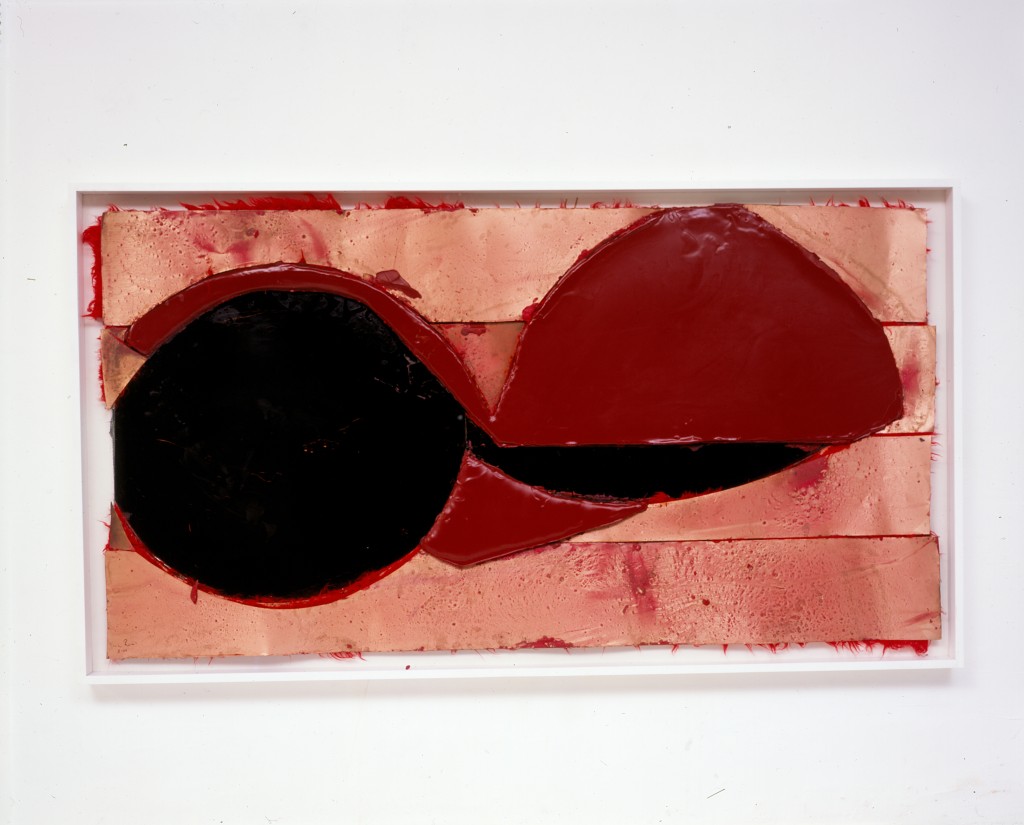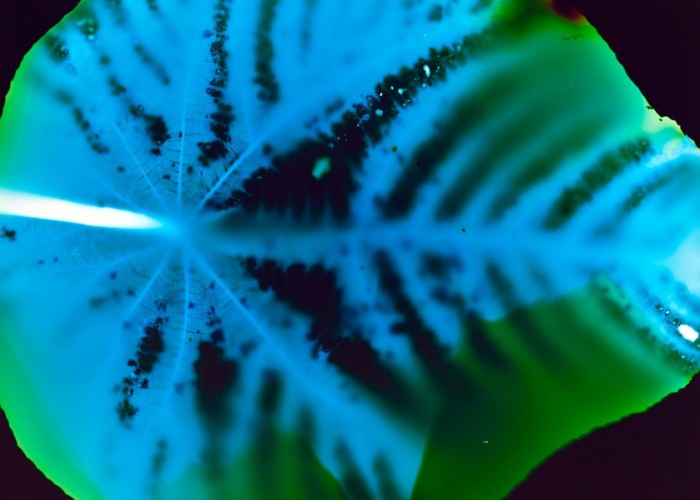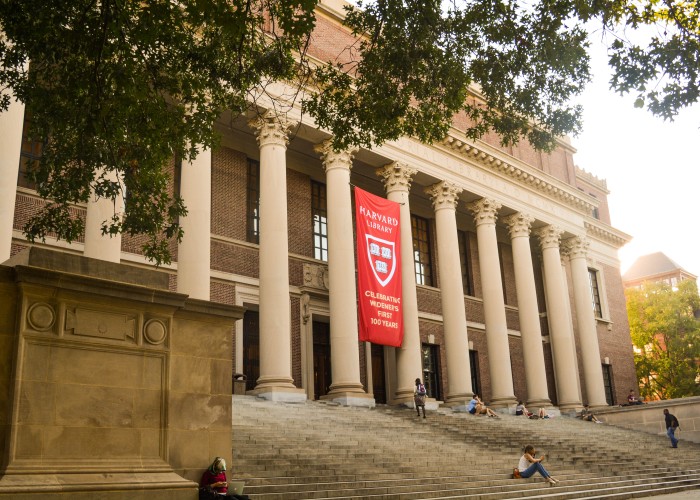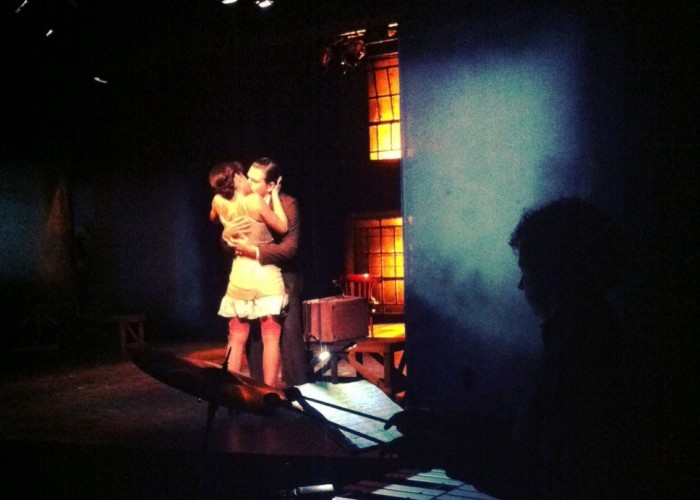Ravensbread (selections)
Nuno Ramos
translated by Adam Morris
Geology Lesson
There’s a layer of dust covering things, protecting them from us. Dark sooty powder, fragments of salt and seaweed, tons of grainy matter that goes crossing the ocean and transforms itself into transparent fibers deposited little by little to preserve that which remained underneath. Almost nothing has been thought about this phenomenon. It’s probably all an enormous camouflage operation, of equalizing a remote signal that we’d easily perceive in the absence of this mountain of tiny accretions. Something inside of things is being disguised, hidden at whatever price, and even this extract of stone, earth, and dry lava where we walked, built our cabins and birthed our children seems to be there to wrap something that tends toward the center. The endless aggregation of Gravity, of mass falling upon mass, matter embracing matter with constantly renewed appetite, comprises the most evident expression of this principle. It’s as though a primordial being, in the midst of an ancient howl, perceived a slit in its body or pus in its eyes, a plumage of strange color in its fur or even a malformation in one of its limbs. Before descending into despair, ashamed by what it saw, it still managed to cover itself with what lay nearby, snatching up everything that had escaped it, and so the material with which it was now dressed had until then formed part of its perfect body — the dust and the earth, the foliage and the plumage, the explosive fire of the stars and the frozen darkness. A giant moving spiral, concentric, curling like a fetus, into which this divinity retracts itself, incapable of self-understanding, of wholly including itself, showing to time and space that until then they were inside it, they were it, its basic behavior—collapse, jolt, suspension; sand, matter, enigma. It’s hard to understand how this attitude of reclusion and shame has irradiated throughout things. Matter, in fact, is perhaps nothing more than the first expression of this escape. Inverse to the explosive affirmation deriving from a complete nothingness, all Physics would have for its starting point the negation and occlusion of some perceived thing, the disguise of a defect, a protective spiral around an identity full of aversion. The expansion of the universe, according to this point of view, should proceed only until the coverup is complete, thereafter becoming unnecessary. But if the flux of dust and lava in our planet continues, if the light diverges from its spectrum toward red, indicating the progressive distancing of stars already so distant, it’s because the ashamed body still couldn’t cover itself completely. In fact, the movement by which the heated gases turn, the collisions of polar masses with the lighter and warner tropic air, the condensation of storms over the ocean, all the salt thrown into the atmosphere, the struggle of membranes and gills, the very suffering of human aspirations, dragons spreading their sequins and scales, shorn lives, chunks of shipwrecked wood, eyes veiled by cataracts, basins where the sargasso dwells, everything that turned grey and later flourished in the spring, everything that the autumn equalized with silver and monotony, the soft pink of sunset, air that fills the chest with joy, seem in fact to be part of a wisdom, furtive gestures that we don’t comprehend, resulting from an enormous and defective body that uselessly tries to conceal itself, to flee beneath appearances. The motive of its failure, probably, is due to the fact that the matter with which it covers itself is itself a part of it, sharing in its deception—it also wants to hide itself, reproducing infinitesimally the movement that ought be restricted to the core of its origin. Through mimicry and resemblance it ends up playing the role that was assigned it during the long litany of existence, turning its face inward, neutralizing its factions, parading slowly. Perhaps it’s a curious contradiction that the thing which makes such at attempt to hide itself should require witnesses like us, that contemplate, admire, and moreover, find it beautiful. Such is all the progressive extinguishing, the periodic nebulization from which it could sprout it riotous flowers, the monotony of a language that ought to be flesh, a mathematics which ought to be of trunks and of marble, yes, the whole lagoon of possibilities that the fragile ambition of our organs never truly rises to desire, gains its imprimatur, its documentation in terms of need—we embrace that which flees from us, we invert its very aversion and refusal, we judge this ashamed and defective nature to be perfect, we adhere, in the end, forlorn and forever to that which seems beautiful, because we have gotten used to obeying love.
* *
Ash
If the fire comes from the forest, we’ll have our ditch. If it comes from inside one of the houses, there’s earth all around them to prevent it from spreading. It if blooms in the big hut, then here’s to its destruction. Perhaps it will be a bolt that strikes us. We know that the fire will come because we all have the same dream. A blue flame and light smoke. The sweet smell of burned flesh. The flight of the survivors among coals, all the way to the dry lagoon. Our calcified carcass beside that of two lions. Later the new trees growing, the new houses, the big hut. Later the same dream and dissipation, all over again.
* *
Wasp
They told me that it was the neighbor lady who said it, that they came after me shrouded in hoods. I was submerged. They ransacked the whole room in search of the ticket. The whole room and the ticket. The sofa sinks. The walls are limp. I would have rather they found me later. I’d have rather it all stopped and they let loose the wasp on me. She’s imprisoned in the sugar pot now, gorging herself. They told me, it was the neighbor lady who said it, that this is exactly what they were going to do.
* *
Moonband
The last strong rain tore up the earth above them. They went about in bands. They followed the moon. It’s been proven they don’t transmit our diseases, but we delight in the final howl. We make soap. We make boneflour, hot fur and blood. Afterwards I wash myself with it. This animal thing. Man’s best friend flees from man. It’s there drying on the asphalt with a limp paw, moribund.
* *
I Take Care Of Them
Since the arrival of the highway I take care of them. I only need a spade, a bit of lime, a bucket, and a bicycle. I don’t even need to pedal much. I hang the bucket with the bottom full of lime from the handlebar. Every morning there’s another dog. At least one. I size him up. Sometimes a few pieces of asphalt come along with it, crags of tar hardened in fur. I try to remember what each was like. I take note of the size, the pattern of spots, the place where the car struck him and the date. If anyone comes to ask me I’m ready. Later I cover them with dirt from my yard. I need to exhume the oldest ones to make room for the newest. I’d like to know their names. When I meet the owner, I ask.
* *
Her Only Chance
I doubt it will work. The hatch will close first. They’ll shoot first. I doubt she speaks German. I doubt they’ll ask me anything. Maybe she’ll pull her documents from her purse before they ask her name. I doubt she knows. They’ll shoot first. Before she can move, murmur. I doubt she’ll know how to say naturally why she’s here. Maybe they’ll want to know. It’s their right. I think for me there’s no risk. I speak German well. But I doubt my German will come out. I also doubt they’ll ask me. They’ll want to know about her, specifically. They’ll ask like this: how can you have such alabaster skin if you come from such a faraway country? How can you walk around there, with your light skin under an overcoat? Don’t you see that everyone’s wanting? And so then one turns to me, but I doubt anyone would do that. One turns to me and asks, in his sly German: where’d you find her? Is she your bitch? He makes a big deal of being rude. Where do you keep her? You guys fuck? You fuck her ass? And so on, but I doubt anyone would speak to me like that. Maybe she’ll be able to run fast, but I doubt she’d do that. She’ll get a cramp, but it would be her only chance. She’ll stand there looking down the barrel of the gun, but it would be her only chance. That hatch is low, I think she’d be able to jump it, but I doubt she’d do it.
* *
Against the Light
Here the earth endures our weight and provides us with crabs. We want to return to the earth, to inside the earth, but above us the sky remains, escaping the tips of the dry trees. Here it is only the wind that stays, balancing the ignoble ball of light, by which we are disgusted. Here we are disgusted by the light.
* *
It Won’t Work
Return the wrinkled skin. Return the toothless mouth. Return the mutilated mixture, inheritance that won’t work. Return to the moon, and take. Spread out your ashes. Now that the light doesn’t watch over this cortege—carnival, silence—close your own eyes. Close them for yourself.
* *
Image: Nuno Ramos, “Untitled” (2005). O pão do corvo was published by Editora 34.
[ + bar ]
Hoag Holmgren
reniform
free-arm comfort of raptor shadows splashing skin with dusk among the dwarf pines shaped by wind eyes carved on the antlertipped spear haft remember the damselfly sifting through mulberry fumes the... Read More »
O único final feliz para uma história de amor é um acidente
Não posso vê‐la esta noite
Tenho que desistir
Então vou comer fugu
Yosa Buson (1716‐83)
1.
Antes do sr. Atsuo Okuda abrir a caixa, tudo estava... Read More »
The World Wide Widener
Patricia Marechal
The story of Widener Library starts with a tragedy. Widener is not only a place of study and one of the largest reservoirs of books and... Read More »
Edgardo Cozarinsky
Translated by Victoria Lampard and Heather Cleary
From “Ultramarina,” a contemporary opera by Marcelo Lombardero, with music by Pablo Mainetti and a libretto by Edgardo Cozarinsky, based on... Read More »








 sending...
sending...